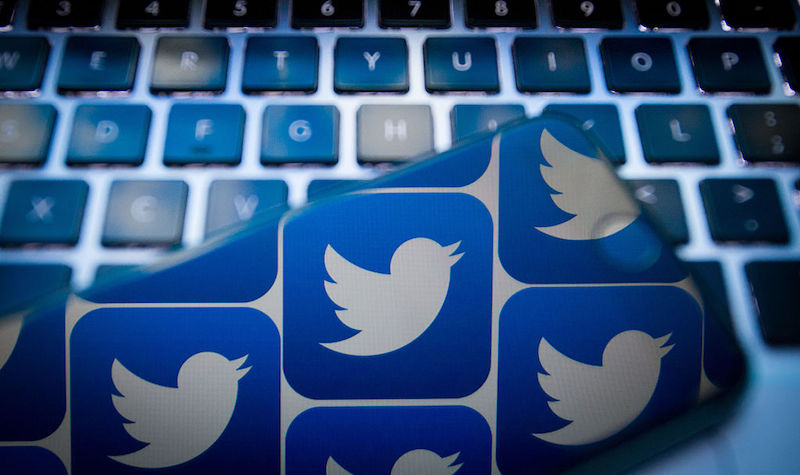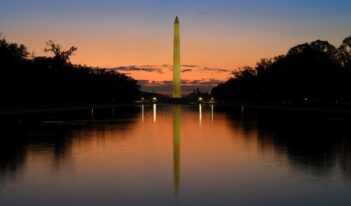
Scholars recommend limited government restrictions on false political speech.
When President Donald Trump tweeted that “Dems want to shut your churches down, permanently,” he committed political fraud.
At least, that is the lesson drawn from a recent article on false political speech that undermines the electoral process by intentionally misleading voters. In this article, Martin H. Redish and Julio Pereyra argue that, in limited circumstances, political fraud ought to be one of the exceptions to the First Amendment’s guarantee of the right to share information and opinions without government interference.
Their analysis depends on a basic assumption about the purpose of the First Amendment. Redish and Pereyra adopt the view of the U.S. Supreme Court that one goal of the First Amendment is to ensure a functional democracy by keeping voters informed. Protecting false speech, Redish and Pereyra argue, is often vital to a functioning democracy. Individuals might not share contentious or even accurate information if the government can later deem it false. According to Redish and Pereyra, false speech should be protected in many, but not all, circumstances.
The dominant view among scholars and practitioners is that the First Amendment protection of the democratic process requires absolute protection of political speech. Alexander Meiklejohn argued in 1948 that the government should not play a role in political discourse. He feared that government interference would prevent the spread of accurate information and would result in a less informed electorate.
An absolute protection of all false political speech, however, also threatens democracy, Redish and Pereyra insist. They argue that political fraud is distinguishable from other false political statements because it undermines the legitimacy of the electoral process by manipulating voters.
Redish and Pereyra acknowledge that any attempt to regulate political speech calls for a delicate balancing act. Statutes that prohibit too much political speech might lead to a less informed electorate by reducing discourse. On the other hand, protecting too much free speech might lead to a misguided or misinformed electorate.
In United States v. Alvarez, the Supreme Court ruled that the government can only limit false speech when it results in “defamation, fraud, or some other legally cognizable harm.” Although the Court has not clarified this standard, some scholars argue that a legally cognizable harm means that the falsehood interferes with a legally enforceable right created by statute or court precedent. Under this view, the government can only restrict political fraud that violates the legal rights of another person.
Redish and Pereyra argue, however, that the legally cognizable harm requirement should be interpreted more broadly. In Alvarez, the Court upheld three statutes that restricted false speech. The plurality wrote that the legitimately regulated speech posed a serious risk of harm to the government’s ability to function. Redish and Pereyra note that the surviving statutes did not target speech that harmed any legally enforceable rights.
Redish and Pereyra claim that an accurate interpretation of the Court’s decision in Alvarez allows the government to limit false speech when it causes harm to a “compelling government interest.” They argue that the government interest in protecting the electoral process by preventing the manipulation of voters is compelling enough to justify intrusion on political fraud.
Redish and Pereyra caution, however, that any such government intrusion should be limited in scope. They recommend four substantive limitations on any laws that would exclude political fraud from First Amendment protection. They claim that, with these limitations, regulation of political fraud would appropriately balance the competing First Amendment concerns of free expression and electoral integrity.
First, Redish and Pereyra emphasize that any regulations of political fraud should be limited to statements about reality that are objectively incorrect. For example, President Trump’s claim that Vice President-Elect Kamala Harris might be ineligible for the vice presidency is demonstrably false. Redish and Pereyra note that, under the First Amendment, ideas can never be regulated, but they say that facts can be.
Second, Redish and Pereyra argue that the inaccuracy in any targeted political fraud must be unambiguous. This requirement of certainty would protect false statements on complex matters, such as the efficacy of a drug, where facts might be disputed and the science still evolving.
Third, any political fraud excluded from First Amendment protection must be the result of “actual malice,” Redish and Pereyra argue. They explain that the Supreme Court has defined actual malice as making statements one knows, or in effect knows, to be false. This requirement would protect speakers who make or share false statements they believe to be true. For example, it would ensure that public health officials could not be punished for claiming that masks are ineffective at preventing the spread the coronavirus based on information that was available to them at the time.
Finally, Redish and Pereyra argue that any regulation of political fraud should be restricted to lies that could potentially change the outcome of an election. They reason that political fraud poses a significant risk when it is widely shared and believed by enough voters to impact the results of an election. They claim that, in most cases, this requirement would protect false statements made by individuals who are not political actors because most people do not reach enough voters to swing an election. Instead, regulations would target public figures and individuals who coordinate widespread misinformation campaigns.
Although Redish and Pereyra recognize the risk of regulating political speech, they fear that unchecked political fraud poses an even greater threat to the democratic process. They conclude that the First Amendment not only allows lawmakers to limit certain political speech, but also that the democratic guarantees of the Amendment demand it.



